All Formats & Editions
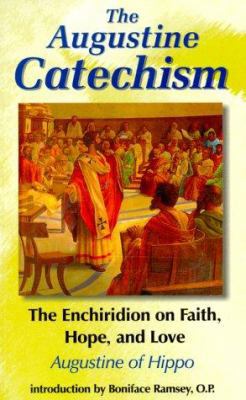
The Augustine Catechism : The Enchiridion on Fa...
Soliloquies is a work from St. Augustine's early life, written shortly after his conversion to Christianity, as he prepares for baptism. In this book, we see Augustine as a philosopher, thinker, and budding theologian. Soliloquies is Augustine's personal prayer to God. Augustine...
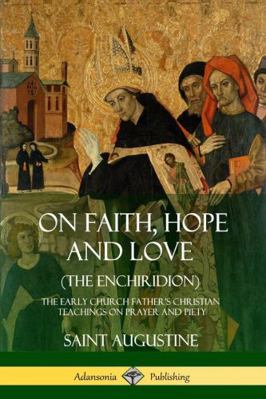
On Faith, Hope and Love (The Enchiridion): The ...
Dating to the early 5th century AD, the Enchiridion of St. Augustine is a superb example of early Christian instruction and virtues, summating the pillars of the faith in a manner inspiring. Augustine of Hippo was among the first Roman Christians to develop and author a comprehensive...
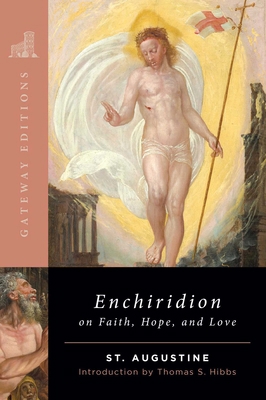
The Enchiridion on Faith, Hope, and Love
"...the ideas of this man furnished the themes for the piety and theology of more than a thousand years. No one possessed the "whole" Augustine, but all lived upon the fragments of his spirit from which each appropriated and understood what was "adapted" to his own wants."...
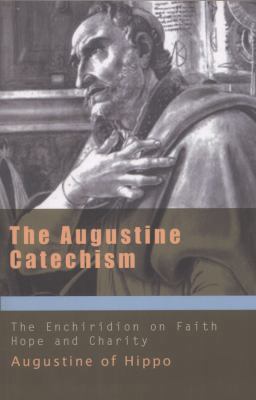
The Augustine Catechism the Enchiridion on Fait...
Saint Augustine of Hippo first works his way through the Creed, and then the Lord's Prayer as recorded by Matthew, ending with the sacraments. This is a colossal work in one small volume. Written as a favor for a friend, this "little work" is a wonderful explanation...

Saint Augustine of Hippo: The Enchiridion
You are anxious, you say, that I should write a sort of handbook for you, which you might always keep beside you, containing answers to the questions you put, viz.: what ought to be man's chief end in life; what he ought, in view of the various heresies, chiefly to avoid; to...

The Augustine Catechism: The Enchiridion on Fai...
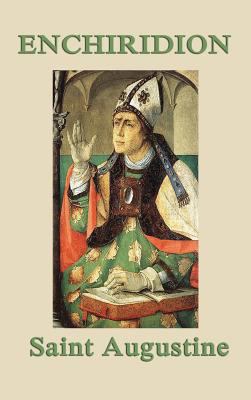
Enchiridion
The Enchiridion is a compact treatise on Christian piety, written in response to a request by an otherwise unknown person, named Laurentius, shortly after the death of Saint Jerome in 420. It is intended as a model for Christian instruction or catechesis. As the title indicates,...
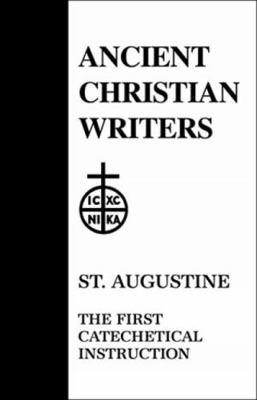
02. St. Augustine: The First Catechetical Instr...
Written about the year 405, this treatise is unique in that it embodies both a manual for the catechist and a catechesis for the prospective catechumen. +
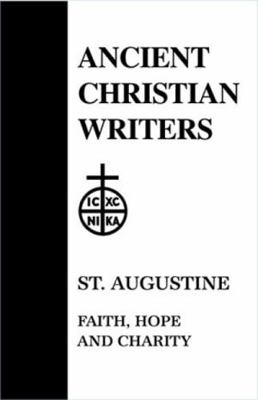
03. St. Augustine: Faith, Hope and Charity
Augustine has given us here a fairly complete compendium of his whole theology and the system on which it rests. +

02. St. Augustine: The First Catechetical Instr...
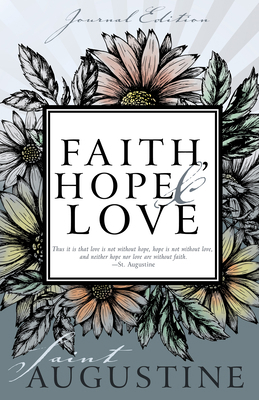
Faith, Hope, and Love (Journal Edition)
"Thus it is that love is not without hope, hope is not without love, and neither hope nor love are without faith." St. Augustine
St. Augustine's Faith, Hope, and Love is a short, insightful treatise on the proper way to worship God. In thirty-three small chapters...

The Enchiridion on Faith, Hope and Love
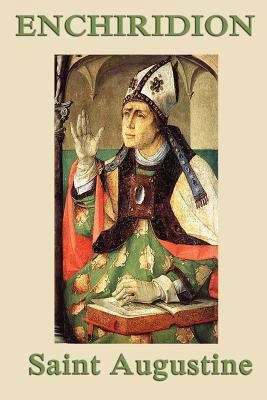
Enchiridion
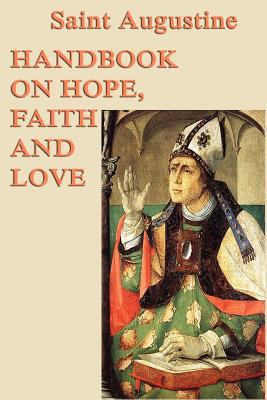
Handbook on Hope, Faith and Love
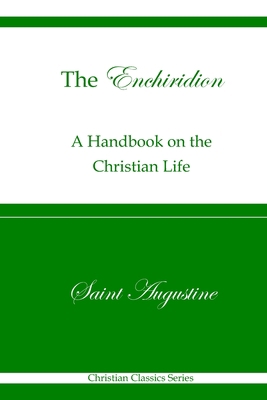
The Enchiridion (Christian Classics Series): A ...
Augustine wrote the Enchiridion, which means "handbook," as an introduction to the Christian life in which he expounds the three virtues of faith, hope, and love. This short work is the best introduction to the thought of this profound theologian which is simultaneously profitable...

The Augustine Catechism: Enchiridion of Faith, ...

Enchiridion on Faith, Hope and Love
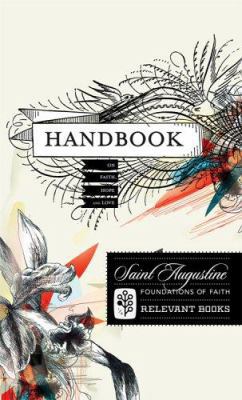
Handbook on Faith, Hope, and Love
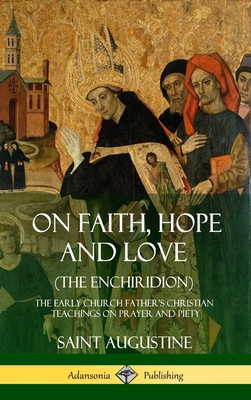
On Faith, Hope and Love (The Enchiridion): The ...
Dating to the early 5th century AD, the Enchiridion of St. Augustine is a superb example of early Christian instruction and virtues, summating the pillars of the faith in a manner inspiring. Augustine of Hippo was among the first Roman Christians to develop and author a comprehensive...

St. Augustine: Faith, Hope and Charity
2017 Reprint of 1947 Edition. Full facsimile of the original edition, not reproduced with Optical Recognition software. Augustine recounts that he "...wrote a book on Faith, Hope, and Charity, at the request of the person to whom I addressed it, that he might have a work of...
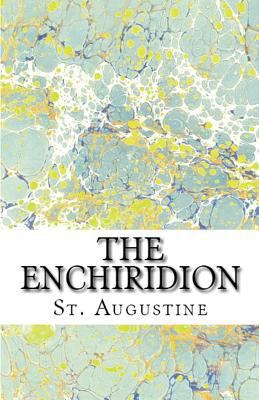
The Enchiridion
St. Augustinspeaks of this book in his Retractations, l. ii. c. 63, as follows: "I also wrote a book on Faith, Hope, and Charity, at the request of the person to whom I addressed it, that he might have a work of mine which should never be out of his hands, such as the Greeks...

Enchiridion on Faith Hope and Love
Written by St. Augustine late in his life with the intention of supplying the Roamn layman with a comprehensive exposition of the basic teachings of Christianity.
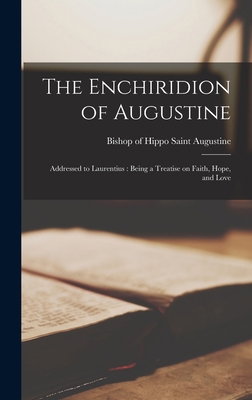
The Enchiridion of Augustine: Addressed to Laur...
This work has been selected by scholars as being culturally important, and is part of the knowledge base of civilization as we know it. This work is in the "public domain in the United States of America, and possibly other nations. Within the United States, you may freely...
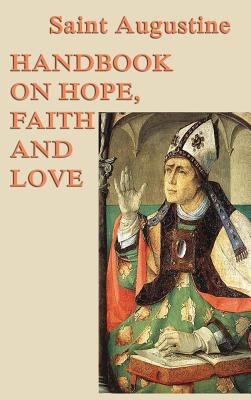
Handbook on Hope, Faith and Love
"Faith, Hope, and Love" is a compact treatise on Christian piety, written in response to a request by an otherwise unknown person, named Laurentius, shortly after the death of Saint Jerome in 420. It is intended as a model for Christian instruction or catechesis. As the title...
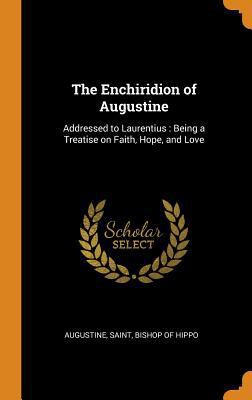
The Enchiridion of Augustine: Addressed to Laur...
This work has been selected by scholars as being culturally important and is part of the knowledge base of civilization as we know it. This work is in the public domain in the United States of America, and possibly other nations. Within the United States, you may freely...



